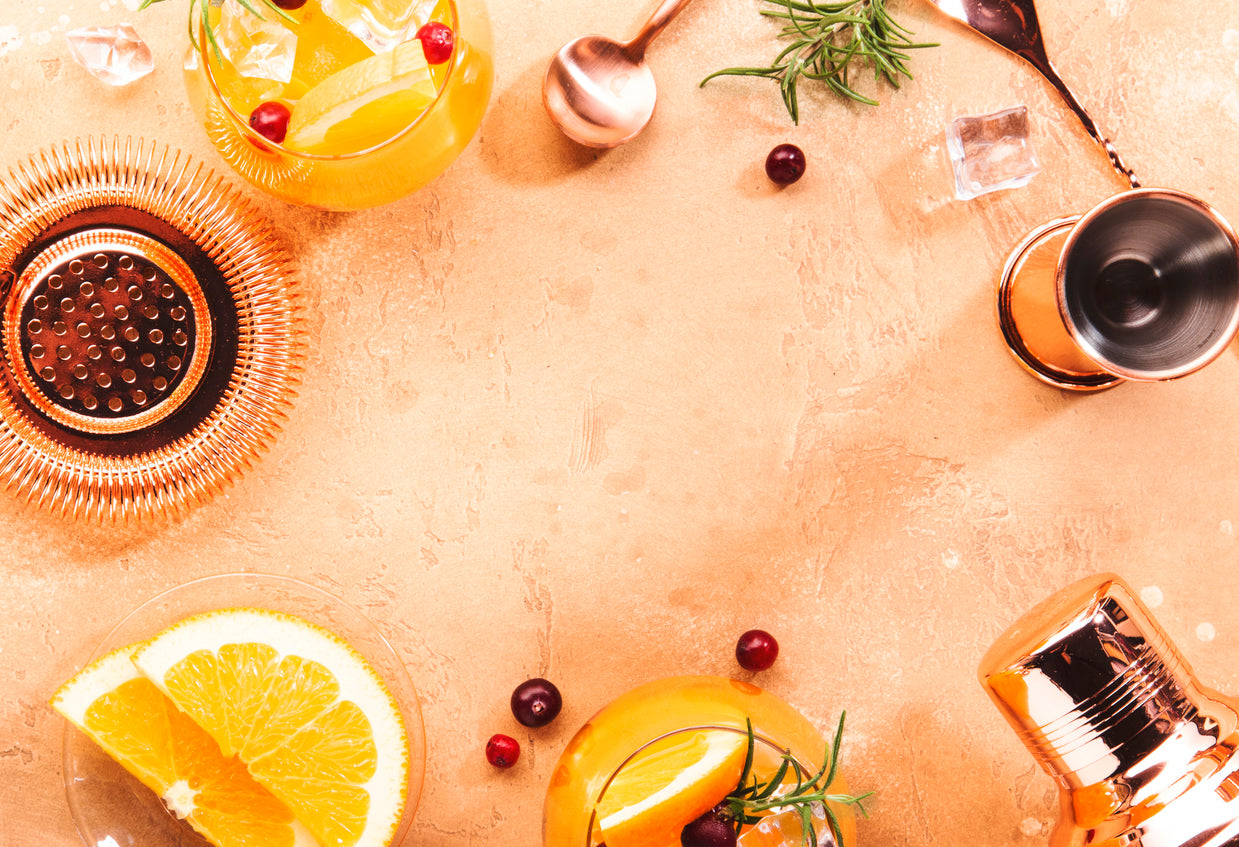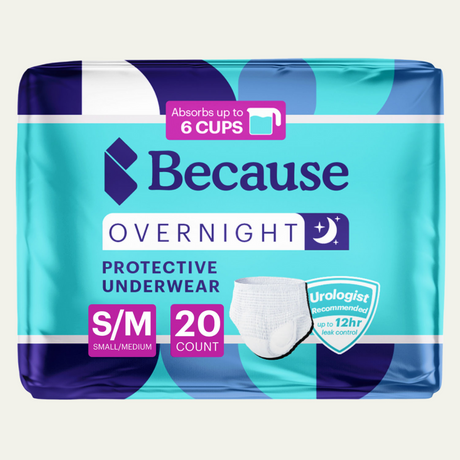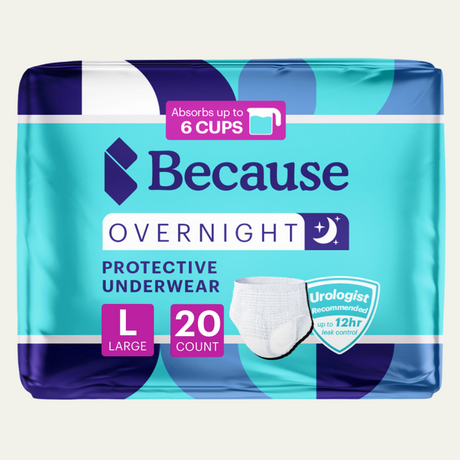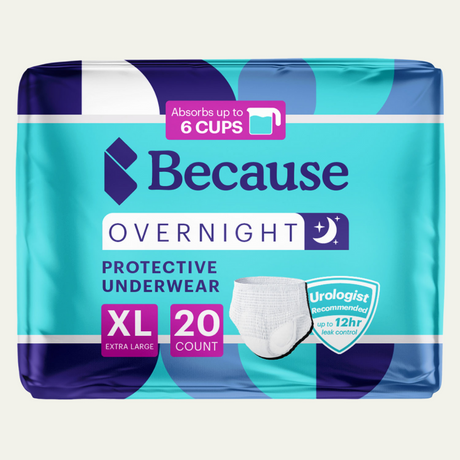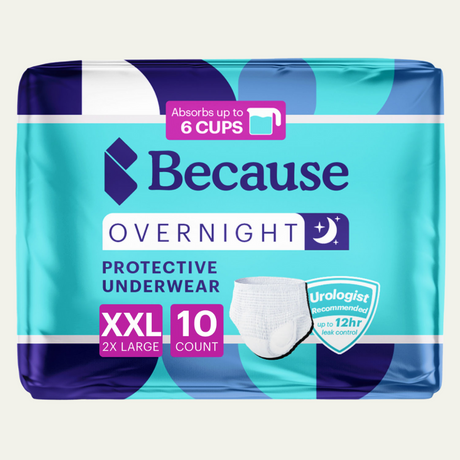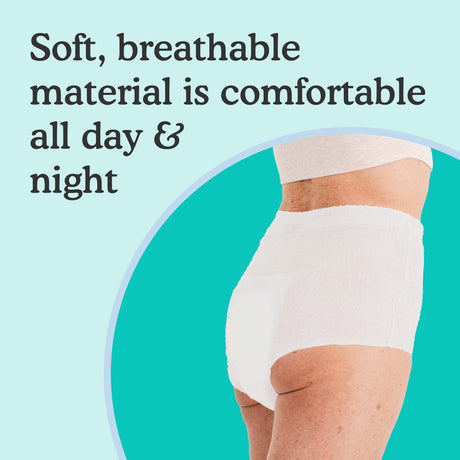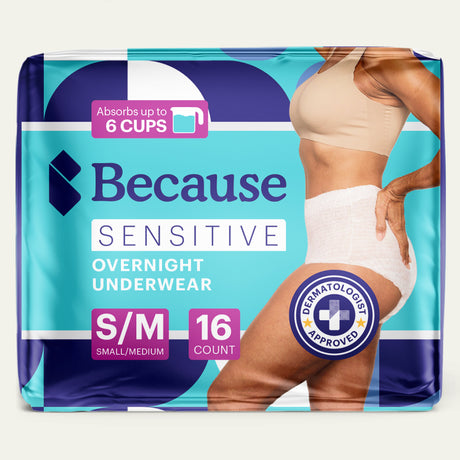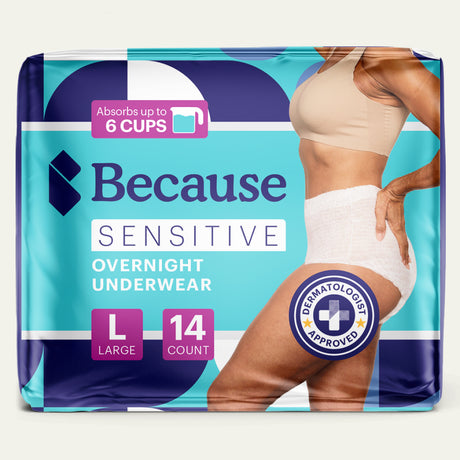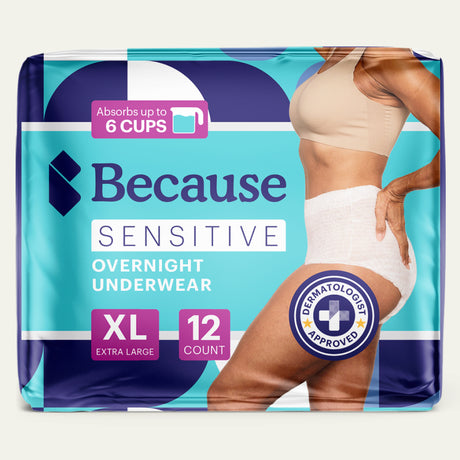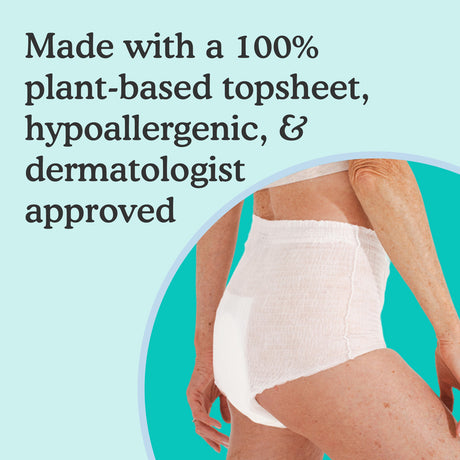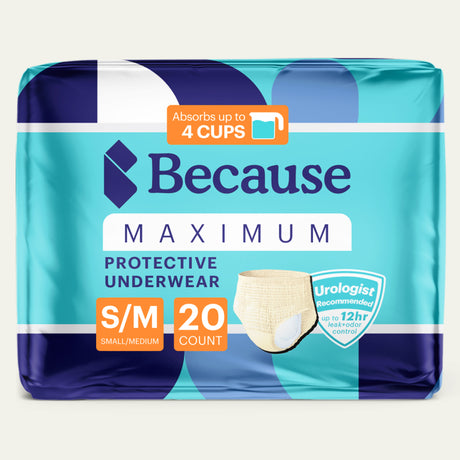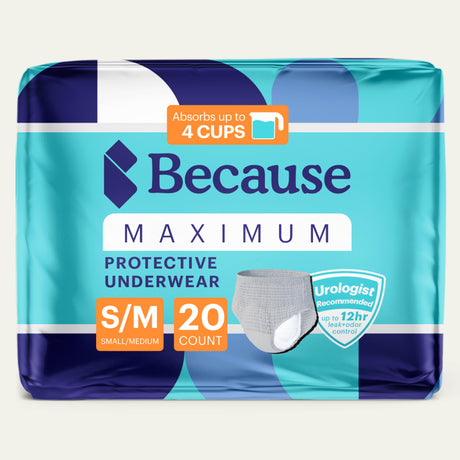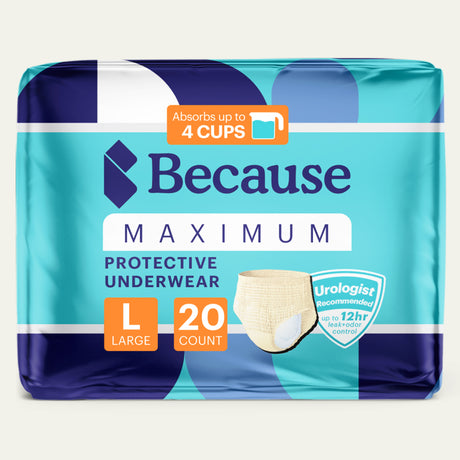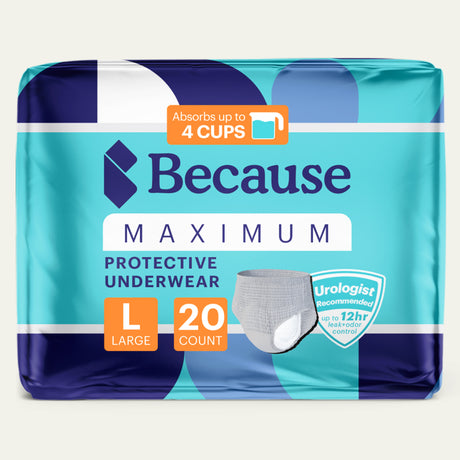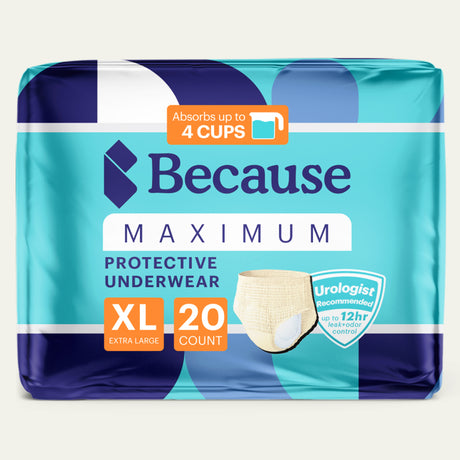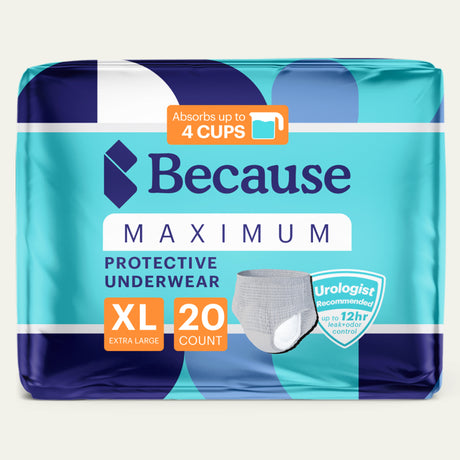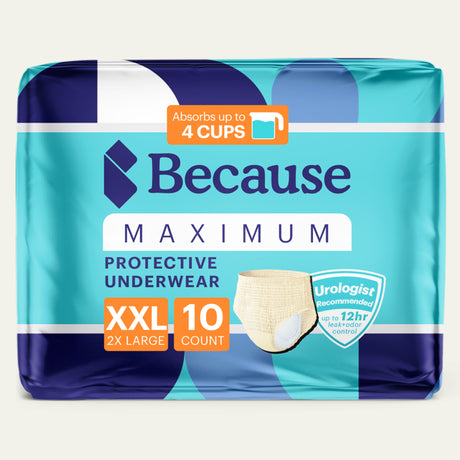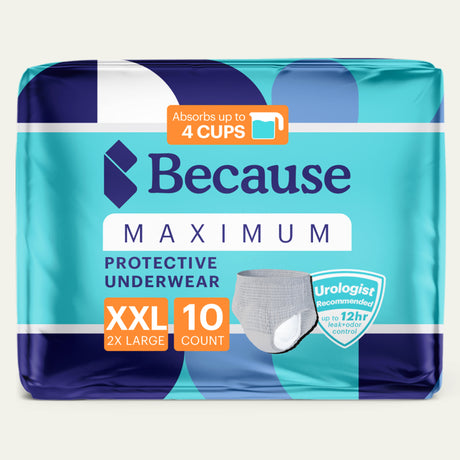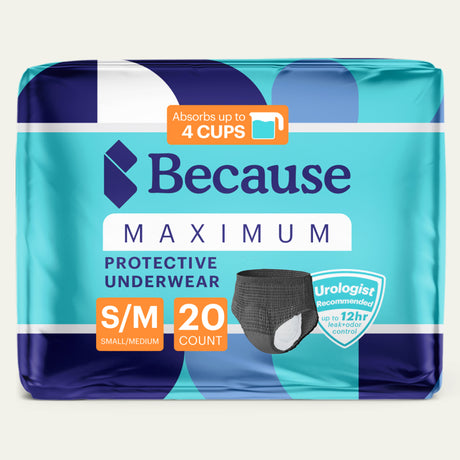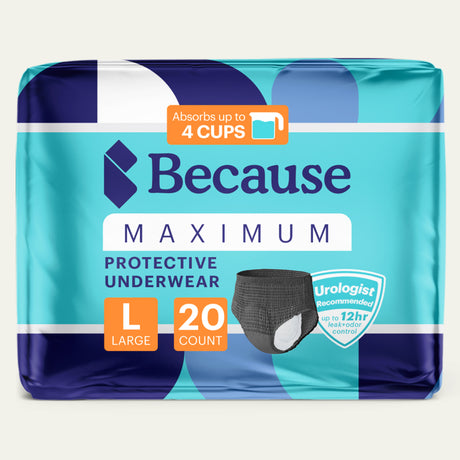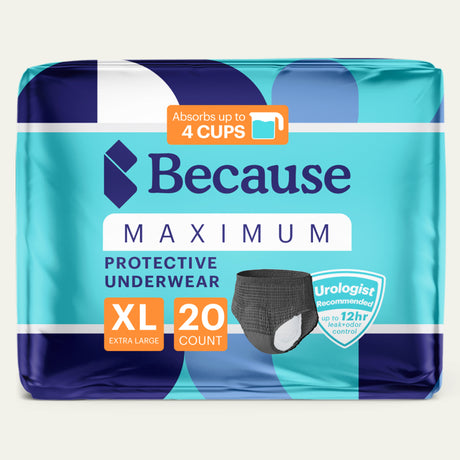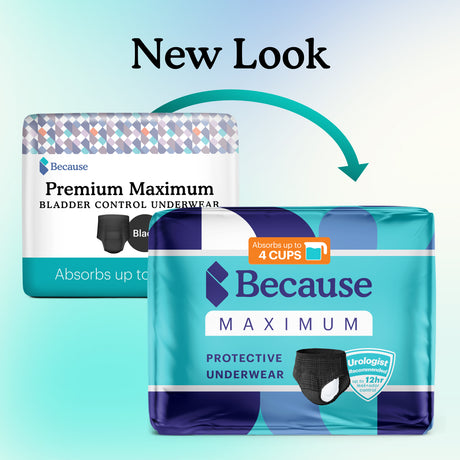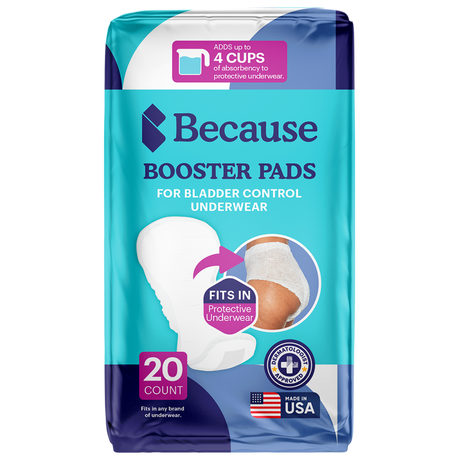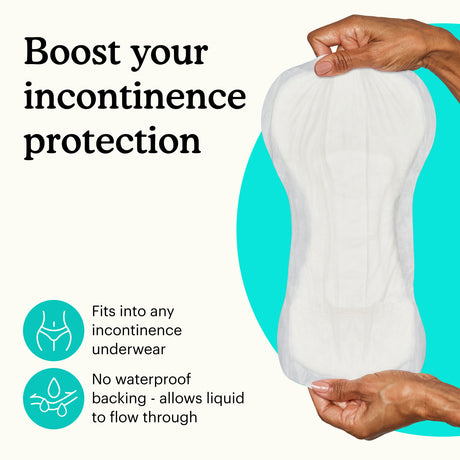Enjoying a few glasses of wine, bottles of beer, or mixed drinks are often a part of holidays, celebrations, and socializing with friends. You probably know that drinking too much can lead to a hangover, but you may not be as aware of how alcohol use affects incontinence symptoms. Whether you suffer from bowel or urinary incontinence, understanding the link between alcohol intake and accidents can help you make informed decisions about consuming alcoholic beverages that can lead to incontinence symptoms like urgency, leaks, nocturnal enuresis, or bedwetting.
Does Alcohol Cause Incontinence?
People who suffer from alcohol use disorder and drink excessively as part of their everyday activities could develop nerve damage called alcoholic neuropathy. A person could develop incontinence if this condition impacts nerves that control the bladder or bowel. However, this is not common.
For people who drink socially or consume alcohol in moderation regularly, alcohol typically isn't the direct cause of urinary or bowel incontinence.

How Are Alcohol and Incontinence Connected?
Alcohol consumption likely won't cause incontinence, but it can worsen symptoms if you have an existing problem. This relates to how alcohol affects the bladder, bowel, and the rest of the body.
How Alcohol Affects the Bladder
Drinking alcohol affects the bladder in the following ways:
- Irritation: Like spicy and acidic foods, coffee, and other beverages containing caffeine, alcohol is a common bladder irritant. For some people, drinking only a small amount of alcohol can lead to bladder inflammation. When this occurs, you may experience frequent urination and urinary urgency. For people with urge incontinence, overactive bladder, and stress incontinence, bladder irritation raises the risk of leaks and accidents.
- Diuretic action: Drinking alcohol interrupts your body's natural water excretion cycle. By suppressing the actions of a hormone called vasopressin, alcohol increases the amount of water loss in the body. That water ends up being made into urine by your kidneys. The rise in urine production leads to urinary frequency, which can make bladder leaks more likely to occur.
- Decreased nerve signaling: Alcohol is a depressant, which slows down your nervous system's activities. This can interfere with the transmission of messages from your bladder to your brain, making you unable to sense your need to urinate until it's an emergency.
- Muscle relaxant: Because it’s a depressant, alcohol has a relaxing effect on the muscles. While this may help you feel more at ease, it also means that your bladder may not hold onto urine as well as it should. For women, relaxation of the pelvic floor muscles can also make leakage due to stress incontinence more likely to occur.
How Alcohol Affects the Bowel
Drinking alcohol affects the bowel in the following ways:
- Irritation: Alcoholic beverages can irritate the lining of the intestines and cause waste to move through more quickly, leading to diarrhea.
- Imbalance of gut flora: Your digestive system is home to trillions of beneficial bacteria called probiotics. Their job is to help break down food and fight infections. Alcohol may lower the number of probiotics in your gut or interfere with the bacteria’s activities, increasing the risk for digestive issues like diarrhea.
- Reduced peristalsis: Peristalsis is the process that allows your body to expel feces, and muscle contractions in the bowels drive it. Because alcohol relaxes muscles and decreases nervous system activity, peristalsis often slows when you drink. This can lead to constipation, which weakens muscles and may worsen bowel incontinence.
Other Ways Alcohol and Incontinence Are Connected
Alcohol has other effects on the body that play a role in the link between drinking and incontinence, such as:
- Dehydration: The diuretic effects of alcohol can leave you dehydrated after a night of drinking. When dehydrated, your pee becomes more concentrated, worsening bladder inflammation.
- Reduced mobility: Being inebriated can make it more difficult for anyone to get to the bathroom quickly. The effects may be even greater for older adults with incontinence and mobility issues.
- Impaired judgment: Alcohol makes it difficult for you to think clearly and exercise good judgment. When intoxicated, you may not choose to use the toilet in a timely manner.
- Risk for unconsciousness: Excessive alcohol consumption can cause a person to pass out, leading to accidents. How much alcohol it takes to reach that state varies significantly from person to person, and some prescription medicines may make you more at risk for becoming severely intoxicated even with minimal alcohol intake.
- Impact on underlying conditions: Drinking alcohol may worsen the symptoms of some medical conditions associated with incontinence, such as MS, diabetes, and dementia.
Does Alcohol Affect Men and Women Differently?
Women and men absorb and process alcohol differently. The difference in body size and chemistry means alcohol travels through women's bodies slower than men's. The slower processing speed means women will typically have higher blood alcohol levels than men when they consume the same number of drinks. As a result, women may be more prone to experiencing incontinence when they drink.
Could Alcohol Be Causing Your Bedwetting Issues?
People with incontinence may experience bedwetting even when they drink only a small amount of alcohol. The effects that alcohol has on the bladder and the rest of the body could mean that you don't wake up when you need to use the bathroom or that the need to urinate comes on too suddenly for you to wake up and make it to the toilet. As a result, you may urinate in bed or experience a bladder leak that wakes you up.
How to Manage Alcohol Incontinence
Although it can be an embarrassing problem, alcohol incontinence is often manageable. To deal with the condition, follow these tips.
Drink Plenty of Fluids Before, During, and After Drinking
Staying hydrated can reduce the risk of both a hangover and incontinence symptoms. When you plan to enjoy alcohol for a social occasion, drink plenty of water and other fluids that day. Have a glass of water between drinks and sip water the following day to replenish what you lost the night before.
Use Overnight Bladder Protection Products
When your social life activities involve drinking, plan ahead to protect yourself. Nighttime incontinence products can help keep your bed and clothing dry if you experience leaks or an accident. Options include pull-on protective underwear for men and women, overnight pads for women, and guards for men. You can also use bed protectors to keep your sheets and mattress clean.
Practice Good Hygiene
If you experience an accident at night, make sure to practice good incontinence skin care in the morning. Cleanse your skin thoroughly with wipes or a cleansing spray, and apply barrier cream if you're experiencing skin irritation. Good hygiene can help control incontinence odors and may even reduce your risk of urinary tract infection.
Talk to Your Healthcare Provider
Discuss alcohol consumption with your physician. They can provide guidelines regarding the number of drinks to stop at when you're celebrating. In addition, they can discuss how alcohol may impact a health condition or interact with medications that you take to treat a condition or disease.
Do you or a loved one struggle with incontinence? Take our bladder protection quiz and get a starter pack to try!
If you or a loved one is struggling with incontinence, join one of our private support groups today!
